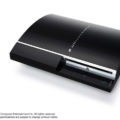PS3 Retrospective – Drew’s picks

Historically, PlayStations have had long tails, tending to last 3-5 years into their successor’s lifetime. I’m not sure if that will be the case with the PS4, given that the PS5 is kind of a PS4 Pro Pro. But for now, the appropriate time to look back at a Sony console is when its successor’s successor comes out.
So that’s why you’re seeing this now. Not when PS3 production ended in 2017. Not when its final game on disc released in 2018. Not for its 15th anniversary next year (though I’m sure somebody will put it on their naughty/nice list then).
It boggles my mind to know that PS3 was the third-place console of its generation in units sold. Mostly, I think, because nobody ever seems to make a big deal out of it. Granted, they made a HUGE deal of Sony’s missteps early on, but then they moved on to complaining about the Wii not being for core gamers. Unlike other generations, fighting over a winner between the Xbox 360 and PS3 just wasn’t anywhere near as big as other console wars.
Meanwhile, everyone called the PSP a failure despite outselling the PS3 by about 2 million units. So keep that mind boggled.

Saboteur
The decision to buy a PlayStation 3 ultimately rested all the way back to choosing Final Fantasy over Nintendo back in 1997, and that pattern was certainly part of the decision to keep it rolling with Sony’s third system, if not the timing.
But the first time I really realized what I had wasn’t playing Final Fantasy XIII, which would come a month later. It was playing my first proper open-world game, newly arrived from Gamefly.
Saboteur’s space and gameplay simply weren’t possible on any prior console. It was my unexpected killer app; the game that told me that the PS3 wasn’t just about prettier graphics; it was a necessary upgrade to unlock entirely new kinds of games.
I don’t remember Saboteur sticking out among an endless stream of Assassins Creeds and the like, and it’s rougher edges certainly sank its impression with critics who has probably seen this style of game a dozen times before I did. But for me, Saboteur was my welcome mat to the next generation.

Rock Band
Unlike the first entry on this list, Rock Band wasn’t about an early impression. It makes the list for being the source of my strongest memories of the PS3.
It didn’t matter that I wasn’t any good. It didn’t matter that it was necessary to buy several overpriced plastic instruments to even play. It didn’t matter that the instruments were abstractions that offered little resemblance to the act of playing actual music (and I should know as an actual musician).
What mattered is that it was the most joyful multiplayer experience I ever had with any game. And it saddens me greatly that it suffered the kind of death a fad suffers. But like all sources of joy, it is far easier to end than it deserves.

Ghostbusters
This might be one of the best-planned and perhaps best-executed games on the system.
The writing is top-notch. The plot feels like it fits the world created by the movies, telling a new story while also providing good-enough excuses to relive a few greatest hits in the first person.
The dialogue and voice acting is so polished (well, Bill Murray wasn’t taking it very seriously, but at least wasn’t being lazy about it) it feels like not a day has passed since Harold Ramus, Dan Aykroyd, Murray, Ernie Hudson, Annie Potts and William Atherton were on set.
The likenesses of our main characters and their gear are striking, well animated and sell the whole setting beautifully.
These and all the extra, on-theme flourishes (like the collateral property damage counter) really elevate what could have been just another FPS with a skin.
…And it also deserves mad props for being the Ghostbusters 3 we wanted so much, but never thought we’d actually get.

Singularity
Two story-based FPS’s in a row? Sure. There were so many of these (and God of War-a-likes) on the PS3 that it’s not so unlikely to hit two.
While Ghostbusters chased an existing property by actually bring part of it, Singularity did so by being a naked, blatant, cash-in copy of Bioshock. But I liked it because it was the far and away best of the Bioshock rip-offs, and therefore the best way to get more Bioshock than actually existed.
The setting? Completely derivative down to the tone of the story and art style. Hidden city driven by raw ideology in its own post-apocalypse? Check. Over-the-top propaganda everywhere? Check. Superscience-based zany super powers? Check. Creepy atmospheric story where things aren’t quite what they seem for the mysterious protagonist? Check.
I can only conclude that people who generally admired the source material were assigned the task of ripping it off, because this was an A+ effort that scratched the itch where so many other imitators had failed. It really is a shame this game isn’t better-known, but perhaps a few of you will come back around to Singularity after reading about it here.





